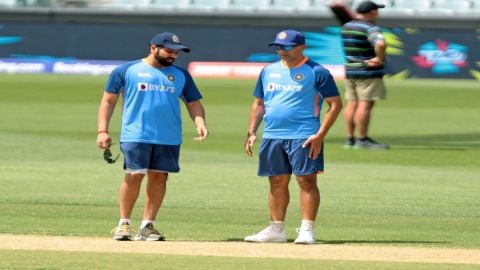
For India's sake, Rohit Sharma and Rahul Dravid must change management style (Image Source: IANS)
So, skipper Rohit Sharma and chief coach Rahul Dravid have to shoulder a lot of blame for the Indian team facing the peril of further debacles in the build-up to the 50-over World Cup following its recent debacles in white-ball cricket in the last couple of months.
India had started the calendar year 2022 by losing three away ODIs to South Africa and are now facing a similar debacle in Bangladesh, having lost two consecutive matches to their neighbours and staring at a 3-0 humiliation. In between, India also lost to England in the semifinals of the 2022 T20 World Cup in Australia.
The team has struggled in all departments of the game and there are question marks on many of the decisions taken by the team management.

